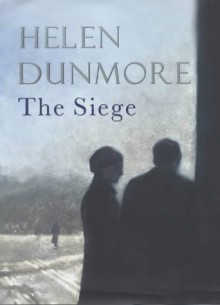The final words of Helen Dunmore's The Siege--"No, I shall not wholly die..."(Alexander Pushkin)--respond to the stark threat with which the novel begins: "Re: The future of Leningrad ... The Führer has decided to have Leningrad wiped from the face of the earth". In this powerful work of fiction,...
show more
The final words of Helen Dunmore's The Siege--"No, I shall not wholly die..."(Alexander Pushkin)--respond to the stark threat with which the novel begins: "Re: The future of Leningrad ... The Führer has decided to have Leningrad wiped from the face of the earth". In this powerful work of fiction, Dunmore writes through her fascination with one of the most remarkable, and painful, episodes in Russian history: the siege of Leningrad through the winter of 1941 during which untold thousands perished of cold and starvation. The Siege is a type of memorial, a literary document to an experience in which, as Dunmore writes, "being dead is normal". People die in the streets, in their beds; whole families are frozen, "bodies piled up by the Karpovka canal, or outside the cemeteries". What does it take to survive? Dunmore explores that question through the powerful characters--Anna Levin, Kolya (her child-brother) and Andrei (her lover)--who people this novel, conjuring the contest with death that becomes the daily existence of the Leningraders, their belief in a world beyond the siege. The Siege is itself part of that world, stricken by memory and the question of what it means for a novel (and a novelist) to take on the "flesh of all those other Leningraders who died of hunger in silent, frigid rooms". This is part of the wager, and accomplishment, of Dunmore's extraordinary book and confirmation of the extraordinary skill and sensitivity, of her writing. --Vicky Lebeau
show less






 10 years ago
10 years ago




 15 years ago
15 years ago